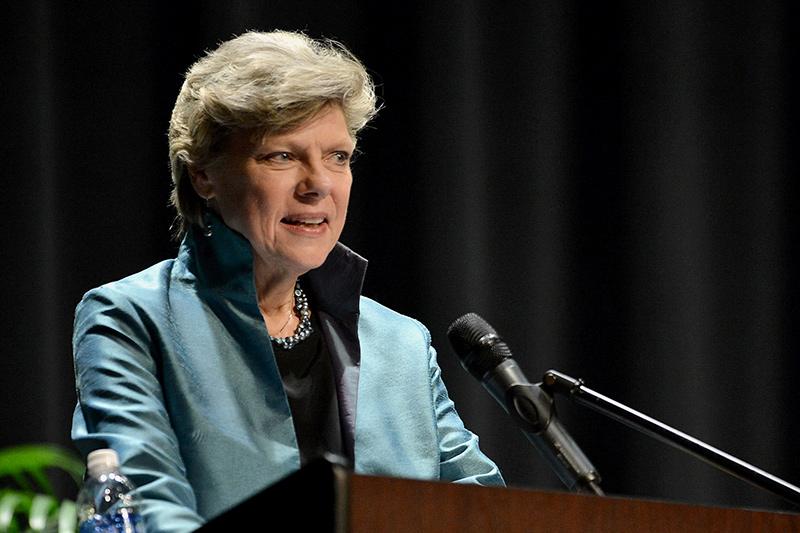Symposium to show how New Orleans became ‘home’ to many
Tulane University will co-sponsor “Making New Orleans Home: A Tricentennial Symposium” — a series of lectures, panels and roundtable discussions held throughout the city to explore how the concept of home has become central to the Crescent City’s cultural identity.
The event’s keynote address, which will be delivered by NPR and ABC News political commentator Cokie Roberts on Thursday, March 8, at 6:30 p.m., takes place in McAlister Auditorium on the uptown campus.
“There is no single place in New Orleans that has an undisputed claim on the history of the city, and we wanted that to be reflected by having multiple sites hosting this symposium,” said Emily Clark, Tulane’s Clement Chambers Benenson Professor in American Colonial History.
“This is for the public. It’s not for scholars or history buffs — it’s for everybody.”
— Emily Clark, Clement Chambers Benenson Professor in American Colonial History
As chair of the symposium program committee, Clark collaborated with Kara Tucina Olidge, executive director of the Amistad Research Center, Louisiana Historical Association representatives and historians from the University of New Orleans, Loyola University New Orleans and Xavier University to develop the symposium’s lineup.
As each day’s programming reflects a different century of local history, scholars and experts from across the United States and Europe will examine an array of topics reflecting the city’s growth.
On Friday, March 9, at 3:30 p.m., professor emeritus Lawrence Powell will interview Walter Johnson, director of Harvard University’s Charles Warren Center, at the Monteleone Hotel (214 Royal Street) on New Orleans’ role in the slave trade.
On Saturday, March 10, at 4 p.m., Xavier University will also host a panel in the University Center's McCaffrey Ballroom exploring the city’s musical legacy with Bruce Raeburn, director emeritus of the Hogan Jazz Archive, professor of anthropology Nick Spitzer and Dr. Michael White, Xavier University’s Keller Endowed Chair in the Humanities.
“This is for the public,” Clark said of the free-to-the-public event. “It’s not for scholars or history buffs — it’s for everybody.”

